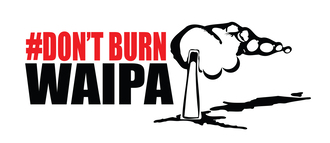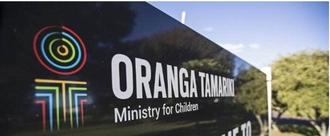-
Recognise Palestinian StatehoodRecognition of Palestinian statehood is essential for NZ to stand up for the rights of Palestinians, including their fundamental right to self-determination. Recognition of statehood is the foundation for full participation in international relations. Without recognition of statehood a territory and its people are vulnerable to serious infringements of their political, economic and wider human rights. While the government of Aotearoa New Zealand states that it supports a two-state solution to the situation in Palestine/Israel, it recognises the state of Israel, but it does not recognise the state of Palestine. The failure to recognise Palestine as a state is inconsistent with NZ's position on a two-state solution, denies the Palestinian people’s right to self-determination and undermines our reputation as a defender of human rights and international law. The situation for Palestinians living under the illegal Israeli occupation is becoming increasingly intolerable. During 2022, 231 Palestinians were killed by the Israeli state and settler violence and in the first month of 2023 alone 42 Palestinians were killed. Numerous major international human rights organisations have reported that Israel is an apartheid regime, including Amnesty International, Human Rights Watch, B’tselem, and the former UN Special Rapporteur on the situation of human rights in the occupied Palestinian Territories [1]. The International Convention on the Suppression and Punishment of the Crime of Apartheid defines “apartheid”, the systematic oppression of one racial group of persons over another, as a crime against humanity. Daily life for Palestinians living under the Israeli apartheid regime is unbearable and inhumane. Just like ordinary New Zealanders were not prepared to stand by in silence while the South African government maintained an apartheid regime, we will not be silent while Palestinians suffer under similar indignities. Recognising the State of Palestine is an essential step towards justice and peace between Israel and Palestine. The Special Rapporteur described “the recognition of the Palestinian people’s fundamental right to determine their political, social and economic status and develop as a people, free from foreign occupation, rule and exploitation.” as the “ critical issue” in addressing the situation in Palestine. [2] We call on the New Zealand government to join the majority of the 193 UN member states and recognise the state of Palestine. References: [1] Amnesty International report: https://www.amnesty.org/en/latest/campaigns/2022/02/israels-system-of-apartheid/#:~:text=This%20is%20apartheid.,order%20to%20benefit%20Jewish%20Israelis; Human Rights Watch report: https://www.hrw.org/report/2021/04/27/threshold-crossed/israeli-authorities-and-crimes-apartheid-and-persecution; B'tselem report: https://www.btselem.org/publications/fulltext/202101_this_is_apartheid; and Special Rapporteur report: https://documents-dds-ny.un.org/doc/UNDOC/GEN/G22/448/72/PDF/G2244872.pdf?OpenElement [2] UN General Assembly Report of the Special Rapporteur on the situation of human rights in the Palestinian territories occupied since 1967, Francesca Albanese (A/77/356) (21 September 2022), at para 11. Available at: https://www.un.org/unispal/wp-content/uploads/2022/10/A.77.356_210922.pdf3,616 of 4,000 Signatures
-
End Labour Violations in Adult EntertainmentMeeting the three demands of our petition would help combat the labor exploitation and sometimes outright trafficking endemic within venues in adult entertainment in New Zealand. The reasoning for our demands are further explained below, but more information can be found on our website www.firedupstilettos.com, and on Employment New Zealand’s website. 1) As is clearly outlined in Employment New Zealand’s guide for determining whether someone is an independent contractor or employee, independent contractors have control over our working hours, control over services we provide and how we provide them, and may work for multiple principles at the same time. We have collected contracts from numerous adult entertainment venues in Aotearoa New Zealand which violate our independent contractor status by proposing dancers pay exorbitant fines for not being at work at a time management decides, or leaving before management wants us to. They have introduced fines that compel us to take our underwear off at a certain time on stage, and keep it off while walking around to collect tips. The most egregious fees prohibit “rudeness” (as determined solely by management) toward management or customers, and “demanding” customers pay us for our labour (also known as asking for a tip–one of the only ways we get paid). The contracts also compel a dancer to agree not to provide services of a similar nature to any third party, allowing them to monopolize and control our labour. These clauses create an atmosphere of dictatorial control by management over dancers that violates our status as independent contractors. We are willing to sacrifice labour security in order to have freedom–we will no longer tolerate having neither. 2) The use of fines and bonds is a standard tactic used by adult entertainment venues in order to coerce compliant behavior from dancers, and they promote self-evident power imbalances that can range from inconvenience to outright labour trafficking. This labour trafficking can occur when dancers are fined by management for a larger amount than they have actually earned, meaning they then owe their employer (who is the one with the power to implement the fine) payment on this debt. Some clubs claim this never happens, which is both untrue and beside the point: the fact that we are afraid it will happen means management is in a position of incredible coercive control, which is dangerous. Although this is in no way unique among venues in our industry, we have included an example of Calendar Girls Wellington’s contract, including the detailed fines. These fines make us afraid. We are afraid to stand up to management for fear of losing all our income, and afraid to stand up to customers who violate our boundaries for fear we will be blamed and go home owing the club money because we dared say no. All fines are coercive and unethical, but threatening dancers with such a huge fine for “rudeness” toward a customer in particular is a safety issue that increases our likelihood of experiencing sexual violence at work: an integral part of any kind of adult entertainment is being able to decide our own boundaries over our own bodies, and which customers we do business with. Coercion and exploitation in adult entertainment is not inherent to the work, but rather to business practices that control when, how, and with whom we do it. 3) As previously stated, independent contractors do not receive a wage: dancers only make what we earn from private dances and tips. In order to gain the right to work in a club, we give a percentage of our earnings to the venue; the proportion of this split has continued to increase in favor of the clubs, creating a condition in which dancers are working more for a smaller percentage of the fee. There is currently no regulation on how much venues can take from us, which has led to what we allege are unfair conditions. The percentage taken by the venue varies throughout adult entertainment in New Zealand, but many extract anywhere from 50-60% of the list price for services (meaning we only earn 39.6%-50% of what the customer has paid for our services), and 20% of tips (meaning we keep 80% of the tips customers give us). We think this division is deeply unfair, but since there are few adult entertainment venues in each city, the clubs are able to set prices so we aren’t able to seek better conditions in another venue. We need industry regulation that sets a limit on how much venues can extract from our profits: we propose the venue is not allowed to take more than 35% of the list price for services, and no more than the 20% already in place for tips.3,380 of 4,000 SignaturesCreated by NZ Dancer Collective
-
Urgent call for FREE cervical screening!The National Screening Unit is currently planning for the upcoming HPV cervical screening programme, due to start later this year. This will be the ONLY national health screening programme not fully funded by the Government. To ensure costs for screening and follow-up tests are not barriers, we are calling for a fully funded, equitable screening programme. This includes FREE screening and follow-up, diagnosis, and treatment. Unless urgent action is taken by the Government to change what is proposed, there will be preventable deaths from cervical cancer. Whānau need their kuia, taua, māmā, whaea and tamāhine, to flourish. No one should die of this preventable cancer. Please sign and share this petition - ngā mihi. On behalf of the many who want this change, those who are undergoing treatment, and in memory of those who have tragically lost their lives to this cancer. This petition is supported by Mana Wāhine, Te Tātai Hauora o Hine (National Centre for Women's Health Research Aotearoa), Hei Āhuru Mōwai Māori Cancer Leadership Aotearoa, the Royal Australian and New Zealand College of Obstetricians and Gynaecologists, the New Zealand College of Primary Health Care Nurses, Tū Ora Compass Health, Family Planning New Zealand, the Public Health Association of New Zealand, The New Zealand College of Sexual and Reproductive Health, Dr Hinemoa Elder, Mayor Tory Whanau, The Cause Collective, Lingy Noiid, and Te Awakairangi Health Network. Please note, in addition to individual signing, endorsement from organizations is welcome and can be detailed above. More information can be found at: https://www.heiahurumowai.org.nz/_files/ugd/b7edfc_621f3417d3b84349be2ed6372d479d30.pdf https://www.heiahurumowai.org.nz/_files/ugd/b7edfc_55f99468f6b44586af3462171d8f0902.pdf3,969 of 4,000 SignaturesCreated by Ande Childerhouse
-
Amnesty for OverstayersEstimates are that Aotearoa has approximately 14,000 people without any visas or legal status. These are migrants, their whānau and tamariki who have been living in fear during some of the worst challenges we have faced as a country. They are victims of our regressive immigration policies, not criminals. Overstayers deserve to lead a life with dignity and respect. They deserve to be safe and deserve to be helped, especially during hard times like the Northland floods and Cyclone Gabrielle. With the current system, overstayers have hesitated to seek medical help such as covid tests and covid vaccination, for the fear of being reported to authorities and subsequently being deported. And now many of them are flood victims afraid of seeking assistance provided by the government. This is potentially a dangerous and unsafe health situation, not just for the victims but for the entire communities surrounding them. Many of our overstayers are children of parents who do not have lawful status. It is harsh and unfair to punish the children by depriving them of access to needed services such as health care providers, education and safety services. Researchers at UNITEC published an excellent report highlighting the plight of overstayers and their families – the stresses are multi-fold and affect their mental well-being. The solution proposed by researchers is also policy change and legal status for the overstayers. Link to the full report: https://www.unitec.ac.nz/sites/default/files/public/documents/Tuvalu%20project%20report%20-FINAL-13.12.2021.pdf An amnesty for all overstayers regardless of their country of origin is the need of the time.While we appreciate that the Prime Minister is going to look at the petition regarding Pacific overstayers, he needs to be inclusive and act sooner than later. We ask the Prime Minister to give overstayers work rights and their children access to public education, allowing them to lead a life of dignity.1,156 of 2,000 SignaturesCreated by Anu Kaloti
-
Save Auckland CABs!The service provided by Auckland CABs is absolutely essential – something that is even more apparent in times of crisis. With the recent floods and the ongoing challenges of daily life, Auckland CABs are helping people with information and advice and connecting them with the support they need. Last year our dedicated volunteers in Auckland CABs helped more than 160,000 people. Auckland Council is proposing to significantly cut or even remove all funding from CABs in Auckland in its budget for 2023/24. This could result in the complete closure of the CAB service, which has been serving Tāmaki Makaurau for over 50 years. Let Auckland Council know that they should not cut funding to Auckland CABs.22,595 of 25,000 SignaturesCreated by Sacha Green
-
Include the queer community, women and disabled people under hate speech law changesIn 2022, there have been numerous attacks on the queer community. An arsonist burned down the Rainbow Youth drop-in centre in Tauranga. Gloria of Greymouth, a pink queer church, was vandalised with anti-queer and religious symbols. The owner of Woof!, a queer bar in Dunedin, received two anonymous death threats through the bar's social media account and messages from Freedom and Rights Coalition leader and Destiny Church pastor Derek Tait, of Christchurch, including an image of Tait pointing at the bar. Hours after the Labour Party announced that it will exclude the queer community from protection under hate speech laws, a 22-year-old gunman entered Club Q, a queer nightclub in Colorado, and immediately opened fire, killing at least five people and injuring 25 others. In 2017, an Auckland pastor Logan Robertson said he was "not against [gay people] getting married as long as a bullet goes through their head the moment they kiss". That statement will remain legal under the government's changes to hate speech laws. Are we waiting for a mass shooting inspired by homophobia and transphobia to transpire at a New Zealand queer bar before we protect queer people from hate speech that incites violence? How many lives will it take before the government protects us? There is well-documented hatred against queer people to necessitate the protection of queer people under hate speech laws. The government's failure to do so will embolden homophobic and transphobic groups, extremist religious groups, and right-wing groups to incite violence against queer people. The government must protect the queer community, women and disabled people under the hate speech law. https://www.stuff.co.nz/national/crime/129122700/man-admits-antisemitic-and-homophobic-attack-on-west-coasts-pink-church https://www.nzherald.co.nz/nz/destiny-church-pastor-accused-of-intimidation-after-posing-outside-queer-friendly-bar-in-dunedin/SXLGUMQ6Y5LO6SZEOWNW4ZQ3DM/ https://www.stuff.co.nz/bay-of-plenty/300700598/pair-plead-guilty-to-burning-down-rainbow-youth-building https://www.newsroom.co.nz/nzs-hate-speech-laws-explained https://www.stuff.co.nz/national/politics/300743361/hate-speech-reforms-drastically-watered-down https://www.theguardian.com/us-news/2022/nov/20/people-killed-shooting-at-colorado-springs-nightclub10,575 of 15,000 SignaturesCreated by Shaneel Lal
-
Decriminalize Psychedelic DrugsIn New Zealand, possession, use, and social supply of psychedelic drugs carries the same penalty as drugs such as heroin, methamphetamine, and cocaine. Neither LSD, DMT, nor magic mushrooms are physically addictive, with no withdrawal symptoms and mellow comedowns. in addition to this, they're also nearly impossible to overdose on, and both (especially mushrooms) do not negatively impact physical health, provided they are taken correctly, in a controlled setting, and are pure LSD/mushrooms. People found in possession of LSD, magic mushrooms, or DMT are currently faced with up to an $1000 fine, or up to 6 months in prison. Decriminalizing and providing education on psychedelics would not only be more appropriate, given the evidence of the nature of both drugs, but would also mean no charges for those found in possession of these drugs, who tend to be predominantly young, male, and Māori. . An overwhelming amount of evidence clearly shows that punishment and convictions for drug users don’t decrease drug use. In truth, New Zealand’s current drug laws are fuelled by stigma, marginalization and are focused on punishment rather than education and rehabilitation. Sources: https://www.discovermagazine.com/health/classic-psychedelics-arent-addictive https://www.drugfoundation.org.nz/policy-and-advocacy/drugs-and-criminal-justice/ https://thelevel.org.nz/drug-information/psilocybin-mushrooms/ https://thelevel.org.nz/drug-information/lsd/ https://www.medicalnewstoday.com/articles/306889#risks https://www.vox.com/2015/7/24/9027363/acid-lsd-psychedelic-drugs261 of 300 SignaturesCreated by Meredith Bowler
-
Ban Lead From Kids’ ProductsThere is NO SAFE LEVEL of lead exposure, and we think children's items should be 100% safe from this risk. Gaps in our legislative and regulatory regime allow toxic lead in many children’s items. It’s time we overhaul our outdated piecemeal laws and standards and, at a minimum, adopt the most stringent international standards on lead in children’s products. Our kids deserve the best protections too. Lead exposure, even at low levels, can set children up for a lifetime of struggle. It can reduce IQ and cause speech delays, behavioural issues, impulsivity, aggression, ADHD and learning difficulties. It's linked to increased school dropouts, criminal activity and reduced earnings as an adult. In addition to brain damage, it also affects every organ system and can cause heart disease, kidney disease, cancer and is a contributing factor in most major health issues. Children are the most vulnerable to these effects due to their smaller size and still-developing brains. This year, some NUK baby bottles were recalled in the USA and Canada due to lead paint on the surface of the bottle. They were not recalled in New Zealand because lead paint on baby bottles is not illegal here. This is unacceptable. Also this year, Lead Awareness NZ coordinated a crowd-sourcing initiative where whanau across the country tested and found high lead levels on the surface of their mugs and glasses, including an alarming number of items clearly designed for children. Some of these are currently for sale in stores. This is unacceptable. A Canadian environmental group has recently reported on the loopholes in their laws that allow high levels of lead inside toys' interior parts. We have the same loopholes in our laws. This is unacceptable. Studies worldwide have found high levels of lead in painted playground equipment and play surfaces. We can’t find any laws limiting lead content in New Zealand playgrounds. This is unacceptable. Australia recently joined the international movement promoted by the WHO to phase out lead from ALL paints, defined as allowing no more than 90 parts per million (ppm) lead. Although New Zealand limits lead in children’s paints and toys to this level, we still allow up to 1000 ppm lead in general use paints and we allow the sale of marine paints containing 800,000 ppm lead. While such general and marine paints aren’t technically children’s items, children live and play in painted environments and are vulnerable to harm from them. This is unacceptable. New Zealand needs to do a better job of protecting children from lead, and we think children's products are a good place to start. Our legal controls are outdated and piecemeal, and unlike our international counterparts we don’t even monitor our young children for their lead exposure levels. There is much to be done in this area, but we need to start somewhere. Let's allow our children to reach their full potential. Let's start by ensuring their products are safe for them. Resources - 2009 New Zealand Unsafe Goods Notice regarding lead in children’s toys (current): https://gazette.govt.nz/notice/id/2009-go2660 (Limits the levels of lead that can “migrate” from a toy surface to 90 mg/kg. It’s understood this was based on the EU Toy Safety law from 1988. However, European lead limits have been updated twice since that time, with the current standard limiting lead migration to between 0.5 mg/kg and 23 mg/kg (depending on toy material). The US and Canada take a different approach and limit the total lead content of toys and children’s products, rather than migratable lead, to 90 mg/kg or 100 mg/kg lead in accessible parts (strictly defined), and a total concentration limit of 90 mg/kg for any surface coatings. New Zealand law has fallen behind. It is time for New Zealand to become a world leader by ensuring that our children’s toys and products are completely lead free.) - ESR Report: Health Risk Assessment: Lead In Children’s Toys, May 2021 https://www.esr.cri.nz/assets/FW21014-Lead-in-Toys-FINAL-30-June-2021.pdf?fbclid=IwAR1uUKegI1pDssl4LQy1dJR_fIHjuFWp6NrrN5buS6Qa-Vm4ceqcOUio_H8 - Summary by Lead Awareness NZ on New Zealand’s ceramics standards https://leadawarenz.blogspot.com/2022/08/regulations-on-leachable-lead-in.html - NUK baby bottle recall Leadsafe Mama summary: https://tamararubin.com/2022/07/july-28-2022-the-cpsc-finally-issued-a-recall-for-the-lead-painted-baby-bottles-that-we-reported-in-june-of-2021-but-they-only-recalled-one-of-at-least-six-lead-painted-designs-from-nuk/ United States recall: https://www.cpsc.gov/Recalls/2022/First-Choice-Glass-Baby-Bottles-Recalled-by-NUK-Due-to-Violation-of-the-Federal-Lead-Content-Ban-Sold-Exclusively-on-Amazon-com-Recall-Alert Canada recall: https://recalls-rappels.canada.ca/en/alert-recall/nuk-first-choice-glass-baby-bottles-recalled-due-lead-excess-allowable-limit - Report by Environmental Defence Canada https://environmentaldefence.ca/report/passing-the-buck/ - Studies on playgrounds UK: https://www.plymouth.ac.uk/news/playground-paints-should-be-closely-monitored-to-reduce-potential-danger-to-public-health US: https://www.cpsc.gov/Newsroom/News-Releases/1996/CPSC-Finds-Lead-Poisoning-Hazard-for-Young-Children-on-Public-Playground-Equipment South Africa: https://pubmed.ncbi.nlm.nih.gov/20218484/ Israel: https://pubmed.ncbi.nlm.nih.gov/29754080/ - Australian Poisons Standard https://www.legislation.gov.au/Details/F2022L01257 (Part 2, Section 7.1(2)(b) of the Poisons Standard provides that paints and tinters (other than anti-fouling or anti-corrosive paints) must meet a 90 ppm limit for lead. In addition, it is understood that anti-fouling and anti-corrosive paints (which currently have a 1000 ppm limit for lead) will be required to meet the 90 ppm limit by October 2023) - Lead Awareness NZ www.facebook.com/leadawarenessnz676 of 800 SignaturesCreated by Ananda Card
-
Make Tertiary Education Free and AccessibleWHY A DEBT FREE FUTURE? Fulfilling these asks and a Debt Free Future is possible, in fact we’ve achieved it before – because education is a public good. Our country has a rich history of free tertiary education, for 121 years, until it was taken away in 1990. After lobbying from students and supporters across the motu, in 2017 we secured a promise of 3 years Fees Free from the Labour Party; but in 2020 the Government broke its promise to extend the policy and took this opportunity, this right, from learners. HOW CAN YOU HELP? We have the power to bring free and accessible education back, and we need your support. Sign and share this petition to be part of the movement fighting for a Debt Free Future. This is about people, community and doing what’s right.1,584 of 2,000 SignaturesCreated by VUWSA President
-
Pardon cannabis offences and decriminalise cannabisSince 1980, over 120,000 New Zealanders have been convicted for cannabis use and possession. These people often lose whānau, jobs or housing, and have their lives marred by the stigma and shame of a drug conviction. This is despite 69% of New Zealanders supporting decriminalisation or legalisation of cannabis. Most of us believe that cannabis should not result in a life-shattering criminal conviction. In October 2022, President Joe Biden pardoned thousands of Americans convicted of cannabis possession. We’re calling on the New Zealand Government to follow suit and to decriminalise cannabis possession and use. We know that here in Aotearoa, the impact of our drug laws is not felt evenly across society. Māori, young people and men bear the burden of cannabis convictions. The US led the charge in making cannabis illegal to crack down on the civil rights movement and Indigenous communities. We have seen the impact of that felt across the world and throughout generations. Biden’s move is a monumental step towards righting the harm caused by cannabis convictions. This is the right move for the United States, and one that New Zealand must follow. References: https://www.drugfoundation.org.nz/policy-and-advocacy/state-of-the-nation-2022/ https://helenclark.foundation/press-release/umr-poll-finds-broad-bipartisan-support-for-cannabis-legalisation-or-decriminalisation-little-support-for-current-law/ https://www.drugfoundation.org.nz/news-media-and-events/new-poll-shows-most-new-zealanders-support-change-in-drug-laws/10,905 of 15,000 SignaturesCreated by NZ Drug Foundation
-
Climate Change Chaos: Don't burn Waipā - NO TO TOXIC WASTE BURNING IN WAIPĀIncinerators Pollute Our Air, Land and Water Waste-to-energy incinerators produce outputs in the form of air emissions, ash, and liquid effluent that are all highly contaminated with toxic substances. Incinerator toxins falling back to land are regularly washed into waterways where they combine with leachate from hazardous waste landfills. These contaminants poison fish and other aquatic life as they flow through our streams and rivers into our harbours and eventually into our oceans. These toxins have the potential to enter our food chain at every stage of their journey to the sea. The burning of plastics, tyres and household rubbish is more polluting than coal as a source of electricity. This incinerator threatens Aotearoa New Zealand’s wider efforts to decarbonise the entire energy sector. Environmental impact from this waste-to-energy incinerator: - Te Awamutu would become a net waste importer. In 2020-2021, the Waipā District sent 27,000 tonnes of rubbish to landfill. This is approximately 74 tonnes/per day. This application would allow for up to 480 tonnes of waste per day to be burnt. This means, at a minimum, GCS could import up to 406 tonnes of additional waste into the community per day. Te Awamutu would be exposed to toxic emissions related to the burning of other regions’ rubbish. - Generate approximately 23 tonnes of toxic ash per day, including 2 tonnes of highly contaminated fly ash. This extremely toxic material will need to be dumped in special hazardous waste landfills. - Emit cancer-causing dioxins and furans, sulphur dioxide, nitrogen oxide, mercury and particulate matter that would impact human health as well as contaminate the surrounding land and Mangapiko stream that is immediately next to the proposed site. - Have a carbon footprint many times greater than the same amount of waste being sent to landfill - there is 150 kilo tons per year of CO equivalent (CO2e) from the combustion itself. - Incinerators release greenhouse gases - for each tonne of waste burnt, up to 1.2 tonnes of carbon dioxide is produced. This will impact on Aotearoa New Zealand’s carbon footprint and progress towards achieving the targets agreed to in the Paris Agreement. Effects on the local Te Awamutu community The waste-to-energy incinerator: - will run 24 hours a day, 7 days a week, 365 days of the year - be right next door to a residential neighbourhood and schools, and be situated almost entirely in a floodplain area - will effect the health and well-being of residents living in the vicinity of the waste-to-energy incinerator - will use Racecourse Road as the access point for all of the rubbish trucks, this road is lined with residential houses on one side of the street meaning an increase in noise and vibration from the increase in traffic and trucks delivering rubbish to the waste-to-energy incinerator - will expose residents to odour nuisance and cancer-causing dioxins released into the air - will endanger the wider community by increasing impacts of climate change and taking Aotearoa New Zealand further away from the climate change targets it needs to achieve - will source municipal solid waste from the region, this means Te Awamutu could become a dumping ground for waste from as far north as Hampton Downs and as far South as Taupo - will be burning tyres that will be sourced from all around Aotearoa New Zealand - may adversely affect land-values of neighbouring properties - be the first waste-to-energy incinerator in Aotearoa New Zealand. Incinerators are being shut down around the world - Europe closed its last mixed solid waste-fed plant in Germany (the Burgau plant) in 2015 due to climate and safety considerations. Denmark plans to cut its incinerator capacity by 30% (closing 7 incinerators) over the next decade, otherwise they can't meet their climate change targets. Other plants are failing due to technical/engineering issues. In February two further plants in the United Kingdom alone closed due to technical failure. In order to deliver an adequate return on investment for waste-to-energy incinerators, a guaranteed specific volume of continual waste is needed for efficient operation. This directly undermine local and national efforts to minimise waste by ‘locking in’ waste production. CONCLUSION It is hard to overstate what a disastrous proposal this is. Central government has not been willing to help communities to stop these dangerous polluting proposals. Collective action is our only avenue to keep incinerators out of Aotearoa New Zealand. Please take a few minutes to share this petition today - because your actions do make a difference to the decision-making process. Incinerators destroy the progress we have already made. While we accept that waste is a problem, we know that incinerators are not the answer. Regenerate not incinerate, to create jobs, and invigorate a zero waste circular economy. To help achieve this goal, we hope you will join us in opposing the waste-to-energy incinerator proposal. This is conforming to Climate Change Chaos - further supporting more Oil and Gas extraction and promoting pollution. Waipā needs less archaic colonial waste structures of incineration, but leadership and investment in Waste for a cleaner Waipā. For further information, please join our Facebook group - https://www.facebook.com/groups/1002070993783725. Ka ora te whenua, ka ora te tangata - when the land is well the people are well.2,849 of 3,000 SignaturesCreated by Dontburn Waipa
-
Listen to the voices of Care Experienced Rangatahi: Stop the Oversight of Oranga Tamariki BillThis bill would disestablish the Children's Commissioner and will result in a weakening of independent monitoring of Oranga Tamariki and effective advocacy for children and young people. Tracie Shipton, CEO of VOYCE, shared concerns that “The Government has not listened to a single recommendation from young people with lived experience on this Bill. These young people have been effectively silenced, and the new systems outlined by the Bill is designed to further muffle and weaken their voices". We join with VOYCE and care experienced young people in calling for this bill to be stopped.1,905 of 2,000 SignaturesCreated by Aaron Hendry

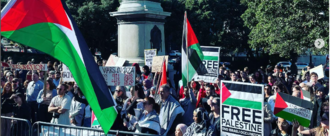
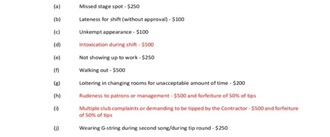.jpg)
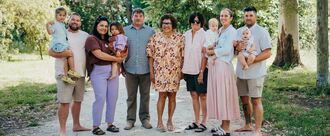
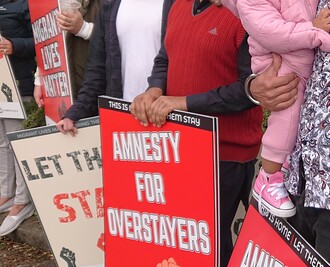
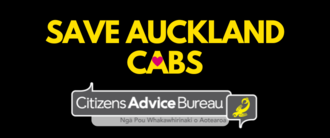.png)
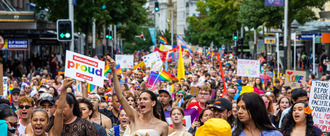


.png)

